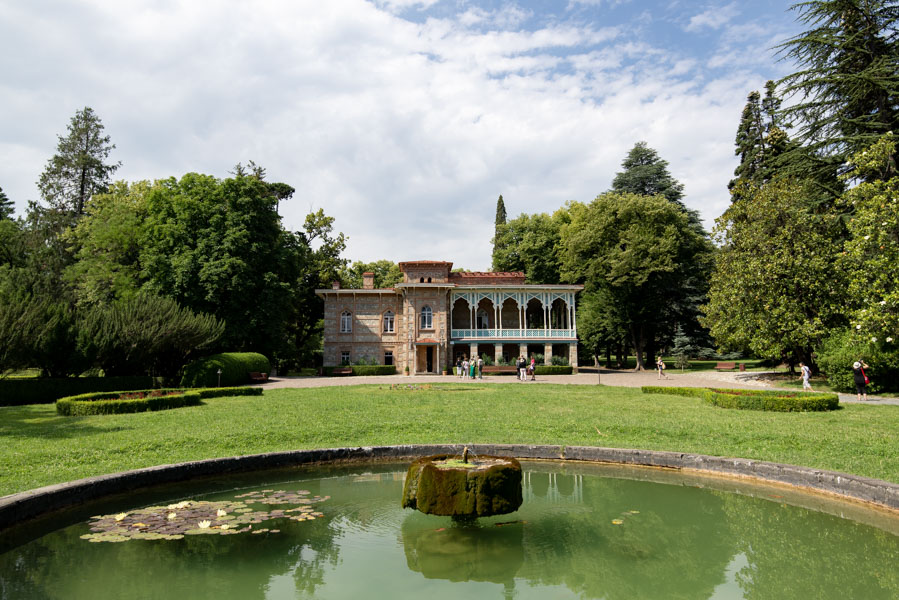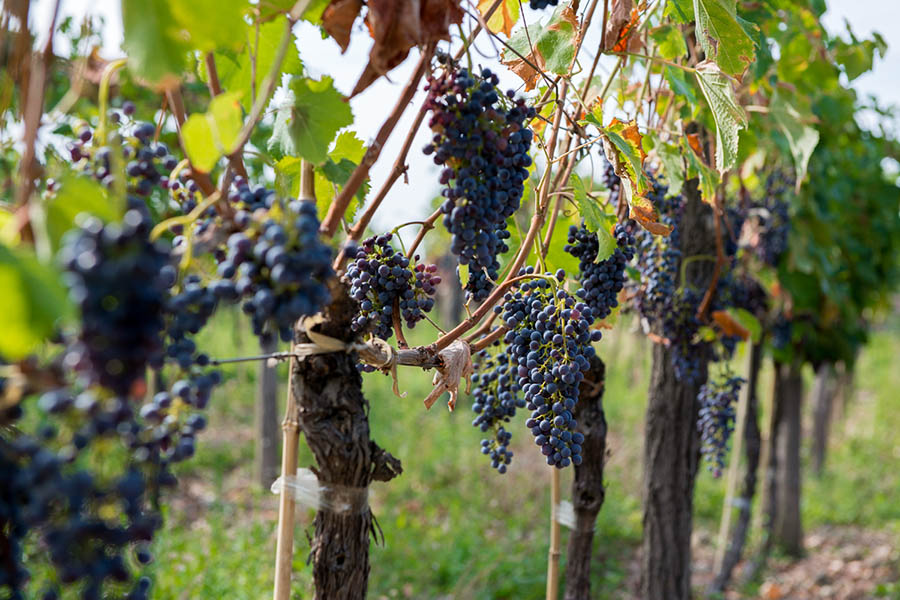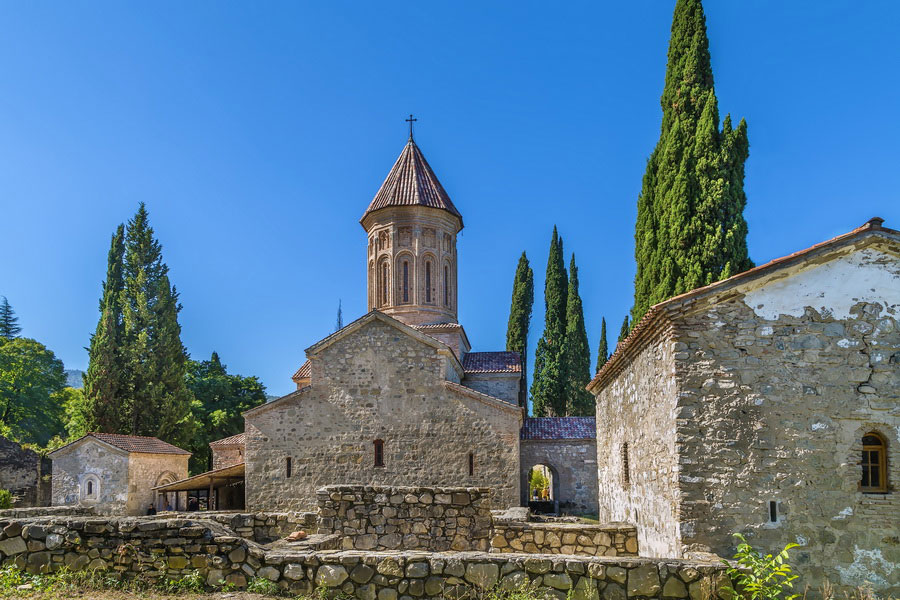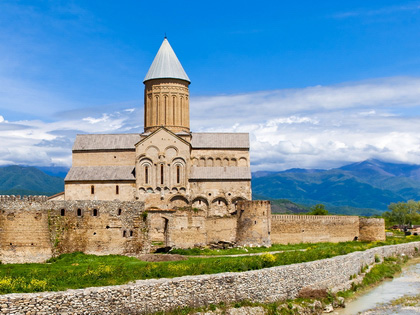Tsinandali, Georgia

Things to Do and Sightseeing Tours in Tsinandali
Nestled among the lush green hills of Kakheti, in the heart of the Alazani Valley, lies the village of Tsinandali. This charming settlement has become a magnet for those who appreciate historical ambiance, breathtaking mountain panoramas, and the rich flavors of Georgian wine. At its core is an architectural masterpiece - the estate of the Chavchavadze princely family - a landmark that has left a significant imprint on Georgian culture, history, and winemaking. Here, visitors can explore the renowned palace and park ensemble, savor the legendary Tsinandali white wine, and soak up the refined social atmosphere of Georgia’s 19th-century intelligentsia.
Tsinandali is where Georgia’s Europeanization began. It was here that the Chavchavadze family established their estate and built Georgia’s first industrial-scale winery, producing wine using European techniques. The village also holds literary significance - Alexander Pushkin and Mikhail Lermontov visited Tsinandali, and writer Alexander Griboyedov met his future wife, Nino, the daughter of the estate’s owner. A visit to Tsinandali is perfect for a leisurely retreat in the estate’s shady alleys while discovering the fascinating history of the Chavchavadze family.
In this guide, we will explore the best things to do in Tsinandali, must-visit landmarks, and where to taste the finest Kakhetian wine.
How to Get to Tsinandali

- By Car
The most convenient and fastest way to reach Tsinandali is by private or rented car. The route from Tbilisi to Tsinandali passes through the Gombori Pass, as well as through Gurjaani and Telavi. The drive takes about 2 hours, offering scenic views of Kakheti’s mountain valleys along the way. - By Minibus (Shuttle Bus)
Regular shuttle buses travel from Tbilisi to Telavi, the administrative center of the region, departing from the Ortachala Bus Station and the Samgori Metro Station. The journey takes about 2 hours. From Telavi, you can reach Tsinandali by taxi or hitchhiking (approximately 10 kilometers). - By Taxi
A taxi from Tbilisi to Tsinandali is a more expensive but comfortable option, eliminating the need for transfers. You can also use popular ride-hailing services in Georgia, such as Bolt or Maxim. - By Bus
There is no direct bus to Tsinandali, but you can take an intercity bus to Telavi and then use local transportation to complete the journey. - By Sightseeing Transportation
Advantour offers guided tours to Tsinandali, including a visit to the Chavchavadze winery and estate. This is a convenient option for those who want to combine transportation with a curated travel experience.
When choosing your mode of transportation, consider the season, weather conditions, and potential traffic congestion. In warmer months, a trip to Kakheti is especially enjoyable, offering breathtaking mountain landscapes and endless vineyards.
Tsinandali Attractions

The Chavchavadze House-Museum
The estate of the noble Chavchavadze family became a center of social and cultural life, not only in Kakheti but throughout Georgia. Built by Garsevan Chavchavadze, the Georgian ambassador to the Russian Empire who signed the Treaty of St. George in 1783, the estate was later inherited by his son Alexander Chavchavadze – a distinguished poet and warrior who participated in European campaigns and battles against Napoleon's army.
Today, the estate houses a museum, where spacious halls display a rich collection of artifacts related to the Chavchavadze family and their distinguished guests. Visitors can also enjoy wine tastings in the estate’s historic cellar, sampling famous Georgian wines such as Tsinandali, Kakhuri White, Mukuzani, Saperavi, Kindzmarauli, and Khvanchkara.
Tsinandali Park
A picturesque green oasis, Tsinandali Park blends the structured elegance of European garden design with the natural beauty of Kakheti’s landscapes. Developed in the first half of the 19th century by Prince Alexander Chavchavadze, it became Georgia’s first landscaped garden, incorporating innovative design elements for its time.
Shumi Winery
One of Georgia’s leading winemaking centers, Shumi Winery masterfully combines traditional Kakhetian wine production methods with modern technologies. Established in 2001, the winery has become a renowned producer of high-quality wines and a popular tourist destination. Visitors can learn about the history of Georgian winemaking, taste rare grape varieties, and discover the secrets of crafting this noble drink.
Sightseeing Near Tsinandali

The surroundings of Tsinandali are rich in historical and natural landmarks that offer a deeper insight into the culture and traditions of Kakheti.
- Telavi – The main town of the region, located just 10 kilometers from Tsinandali. One of its key attractions is the Palace of King Irakli II, built in the 18th century, where valuable artifacts related to the history of the Kartli-Kakheti Kingdom are preserved.
- Ikalto – An ancient monastery founded in the 6th century, known as one of Georgia’s earliest educational centers. The Ikalto Academy, which operated here in the 12th century, is believed to have been a place of study for the great Georgian poet Shota Rustaveli.
- Gremi – A 16th-century architectural complex that once served as the capital of Kakheti and a major trade center. The site includes the fortress of the Kakhetian kings, the Church of the Archangels, and archaeological remains from the region’s past.
- Nekresi – One of Georgia’s oldest Christian monasteries, founded in the 6th century. Perched atop a hill, it offers breathtaking panoramic views of the Alazani Valley.
These historical sites, located just a short distance from Tsinandali, make the region a true treasure trove of Georgian history and culture.
Tsinandali Music Festival

Since its inception in 2019, the Tsinandali Music Festival has brought world-class performances to the historic Tsinandali Estate. Every September, this prestigious event transforms the estate into a mesmerizing stage for a series of classical music concerts. Featuring renowned musicians from around the world, the festival has become a celebrated gathering of international talent.
If you are in Kakheti, be sure to experience the legacy of one of Georgia’s most famous families.


